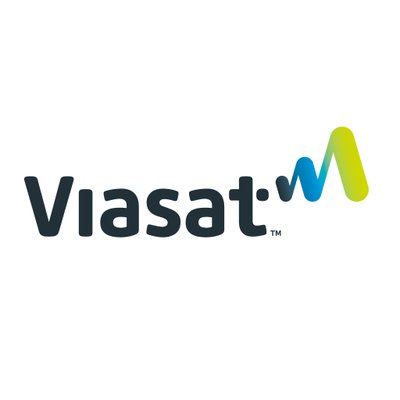The cost of high speed internet service has steadily risen over the past several years but even more so for customers who stay loyal to their internet service providers. Few customers realize that there are certain powers you have as a consumer that can help you leverage a better price for your internet service.
22 October, 2024 | Posted by: Pablo Mendoza
Category: Deals & Packages, Tips | No Comments

Negotiating with your internet service provider (ISP) can lead to significant savings on your monthly bill. Whether you're looking to reduce costs, upgrade your plan, or secure better terms, effective negotiation requires preparation and strategy. This guide will help you navigate the process and get the best deal possible.
Before you start negotiating, it's essential to understand your current plan and determine your needs. Ask yourself:
Knowing your current plan's details will help you identify areas where you can negotiate for better terms.
Researching what other ISPs in your area offer can provide leverage during negotiations. Look for:
Websites like BroadbandNow and CNET provide comprehensive comparisons of ISPs and their plans, which can be useful in your research.
When you contact your ISP, be prepared with specific points to discuss. These may include:
When you're ready to negotiate, call your ISP's customer service. Here are some tips for the call:
If you don't get the desired outcome on your first call, don't give up. Follow up with additional calls or try different customer service channels, such as online chat or email.
Here's a sample script to help guide your conversation with your ISP:
Hi, my name is [Your Name], and I've been a loyal customer for [X] years. I'm calling because I've noticed that new customers are being offered [specific promotion or rate], and I would like to see if I can get a similar deal. Additionally, I've seen that [competitor] is offering [specific offer], and I'm considering switching if I can't get a better rate with you. Can you help me with this?
To help you prepare for negotiations, here is a comparison of internet plans from some popular ISPs:
| ISP | Plan Name | Price | Speed | Data Cap | Details |
|---|---|---|---|---|---|
| Comcast | Performance 200 | $81.95/mo | 200 Mbps | No data cap | Good for streaming and gaming |
| AT&T | Internet 1000 | $60.00/mo | 1,000 Mbps (1 Gbps) | No data cap | Ideal for large households |
| Spectrum | Internet 400 | $49.99/mo | 400 Mbps | No data cap | Suitable for multiple users |
| Verizon | Fios Gigabit | $79.99/mo | 940 Mbps | No data cap | Best for heavy internet usage |
| Cox | Preferred 150 | $59.99/mo | 150 Mbps | 1 TB | Good for moderate usage |
Negotiating with your ISP can lead to significant savings and better service. By assessing your needs, researching competitor offers, and preparing your negotiation points, you can increase your chances of securing a better deal. Remember to be polite, persistent, and prepared to follow up if necessary.
For more updates and information on internet service providers, stay tuned to our blog.
WOW internet is a reliable, fast, and fair priced internet service. This is an overview of WOW Internet service and WOW internet deals in 2020, which will help customers answer the question, Is WOW internet the best internet provider in my area.
26 December, 2024 | Posted by: Pablo Mendoza
Category: Deals & Packages, Reviews | No Comments

WOW! (WideOpenWest) is a regional cable and fiber internet provider that offers a variety of internet plans, including high-speed options and bundles with other services. This guide provides an updated overview of WOW! Internet and Cable, including a comparison table of the latest plans available from the provider.
Here is a detailed comparison of the internet plans currently available from WOW!:
| Plan Name | Price | Download Speed | Upload Speed | Data Cap | Details |
|---|---|---|---|---|---|
| Internet 100 | $19.99/mo | 100 Mbps | 10 Mbps | No data cap | Ideal for basic browsing and email |
| Internet 300 | $39.99/mo | 300 Mbps | 20 Mbps | No data cap | Suitable for streaming and gaming |
| Internet 500 | $49.99/mo | 500 Mbps | 20 Mbps | No data cap | Great for multiple users |
| Internet 1 Gig | $64.99/mo | 1,000 Mbps (1 Gbps) | 50 Mbps | No data cap | Best for heavy usage |
| Internet 1.2 Gig | $74.99/mo | 1,200 Mbps | 50 Mbps | No data cap | Excellent for large households |
| Internet 2 Gig | $99.99/mo | 2,000 Mbps | 100 Mbps | No data cap | Ultra-fast speeds for all needs |
| Internet 5 Gig | $247.99/mo | 5,000 Mbps | 100 Mbps | No data cap | Top-tier performance |
WOW! also offers bundles that combine internet with other services like YouTube TV and home phone service. Here are some popular bundle options:
| Bundle Name | Price | Download Speed | Channels | Details |
|---|---|---|---|---|
| Internet 300 + YouTube TV | $92.99/mo | 300 Mbps | 100+ | Great for streaming and light gaming |
| Internet 600 + YouTube TV | $107.99/mo | 600 Mbps | 100+ | Ideal for mid-sized households |
| Internet 1 Gig + YouTube TV | $122.99/mo | 1,000 Mbps (1 Gbps) | 100+ | Best for heavy streaming and gaming |
| Internet 1.2 Gig + YouTube TV | $157.99/mo | 1,200 Mbps | 100+ | Excellent for large households with many devices |
| Internet 5 Gig + YouTube TV | $247.99/mo | 5,000 Mbps | 100+ | Ultimate performance for all needs |
WOW! Internet and Cable have received mixed reviews from customers. While many appreciate the no-contract flexibility and competitive pricing, others have reported issues with customer service and occasional outages. It’s advisable to read customer reviews and consider local service reliability before making a decision.
WOW! offers professional installation services to ensure your internet and cable services are set up correctly. The installation fee is often waived during promotional periods, so be sure to check for any ongoing offers.
Signing up for WOW! services is straightforward. You can visit their website, enter your address to check availability, and choose a plan that suits your needs. Alternatively, you can call their customer service for assistance with selecting a plan and scheduling installation.
WOW! offers a variety of internet plans and bundles to meet different needs and budgets. With high speeds, no contracts, and unlimited data options, WOW! is a great choice for many households. Whether you need basic internet for browsing and email or ultra-fast speeds for streaming and gaming, WOW! has a plan that can meet your needs.
For more updates and information on internet service providers, stay tuned to our blog.
Find the best internet service provider for remote work during the pandemic. Compare speeds, reliability, and plans to stay connected from home.
16 November, 2024 | Posted by: Pablo Mendoza
Category: Deals & Packages, Reviews, Tips | No Comments

Working from home has become a necessity for many, and having a reliable internet connection is crucial for productivity. This guide will help you choose the right Internet Service Provider (ISP) for your remote work needs in 2020, updated with the latest information and related articles for further reading.
Internet speed is one of the most critical factors to consider when working from home. Different activities require different speeds:
For more detailed information on internet speeds, check out How Fast Does Internet Need to Be for Streaming, Gaming, and More?
Bandwidth refers to the maximum volume of data that can be transmitted over your internet connection in a given amount of time. If you have multiple devices connected simultaneously, you'll need higher bandwidth to avoid slowdowns.
An unreliable connection can disrupt your work and cause frustration. Look for ISPs with high uptime guarantees and positive customer reviews regarding reliability.
Good customer support is crucial, especially if you encounter issues with your internet connection. Ensure that the ISP offers 24/7 customer support and has a reputation for resolving issues promptly.
Some ISPs impose data caps, which can limit the amount of data you can use each month. For remote work, especially if it involves video conferencing and large file transfers, it's best to choose an ISP that offers unlimited data plans.
While cost shouldn't be the only factor, it is essential to find an ISP that offers good value for money. Compare the prices of different ISPs and the features they offer to ensure you get the best deal.
Different types of internet connections offer varying speeds and reliability:
Fiber internet is the fastest and most reliable option available. It offers high speeds and low latency, making it ideal for remote work. Providers like AT&T Fiber and Google Fiber are excellent choices.
Cable internet also provides high speeds and is widely available. Companies like Spectrum and Cox offer robust cable internet plans suitable for remote work.
DSL internet can provide decent speeds, but its performance can degrade if you are far from the provider's hub. AT&T offers reliable DSL plans.
Satellite internet is generally slower and less reliable than other types, but it can be a good option for those in rural areas. Viasat and HughesNet are the primary providers.
Based on current availability and the criteria outlined, the leading ISPs for remote work include:
For more details on the best ISPs, check out Best Internet Providers for 2024.
Choosing the right ISP is crucial for a smooth and productive remote work experience. Consider factors such as speed, bandwidth, reliability, customer support, data caps, and price when making your decision. By doing thorough research and comparing different options, you can find an ISP that meets your needs and ensures a seamless work-from-home experience.
For more updates and information on internet service providers, stay tuned to our blog.
Viasat WiFi Internet : A Comprehensive Review for 2020
22 October, 2024 | Posted by:
Category: Deals & Packages, Reviews, Internet, Service Providers | No Comments

Viasat, a prominent satellite internet provider, continues to make significant strides in the broadband industry. This article delves into the latest developments, offerings, and technological advancements by Viasat, highlighting how they are shaping the future of satellite internet.
New Satellites Launched: Viasat has successfully launched new satellites to enhance its network capacity and coverage. These satellites aim to provide faster and more reliable internet service, particularly in underserved and remote areas.
Improved Bandwidth: The new satellites are equipped with advanced technology to offer improved bandwidth, allowing for better performance even during peak usage times.
Global Coverage: The Viasat-3 satellite constellation promises near-global coverage, significantly expanding Viasat's reach. This initiative aims to connect even the most remote locations with high-speed internet.
Enhanced Speeds and Capacity: Viasat-3 is designed to deliver unprecedented speeds and capacity, ensuring that customers receive consistent and reliable internet service.
Unlimited Data Plans: Viasat now offers unlimited data plans, allowing users to enjoy high-speed internet without worrying about data caps. This is particularly beneficial for heavy internet users and households with multiple connected devices.
Affordable Options: To cater to a diverse customer base, Viasat provides a range of plans at various price points, ensuring that high-speed internet is accessible to more people.
Tailored Packages: Viasat offers specialized internet packages for businesses, providing reliable and high-speed connectivity essential for business operations.
Remote Work and Telecommuting: With the rise of remote work, Viasat's business internet solutions support seamless telecommuting, video conferencing, and cloud-based applications.
Smart WiFi: Viasat has introduced smart WiFi technology, which optimizes the distribution of internet bandwidth across devices. This ensures a stable and fast connection, even when multiple devices are connected simultaneously.
Advanced Security Features: Viasat's WiFi technology includes robust security features to protect against cyber threats, ensuring a safe online experience for users.
Hybrid 5G-Satellite Network: Viasat is exploring the integration of 5G technology with its satellite network. This hybrid approach aims to combine the strengths of both technologies, offering enhanced speed, reliability, and coverage.
Future Prospects: The integration of 5G and satellite technology is expected to revolutionize internet connectivity, providing ultra-fast speeds and low latency, even in remote areas.
Rural and Underserved Areas: Viasat's efforts focus on bridging the digital divide by providing high-speed internet to rural and underserved communities. This initiative aims to ensure that everyone, regardless of location, has access to reliable internet.
Educational Programs: Viasat partners with educational institutions to provide internet access to schools in remote areas, supporting online learning and educational resources.
Emergency Services: Viasat's satellite internet plays a crucial role in disaster response, providing connectivity in areas affected by natural disasters where traditional infrastructure is damaged.
Mobile Units: Viasat deploys mobile internet units to provide temporary connectivity in disaster-stricken areas, ensuring that emergency services and affected communities stay connected.
Viasat continues to push the boundaries of satellite internet technology, offering innovative solutions that enhance connectivity and accessibility. With its expanding satellite network, new service plans, and commitment to bridging the digital divide, Viasat is poised to play a significant role in the future of global internet connectivity.
Can a poor credit score be a problem when getting a satellite internet connection for your home or office? Find the answer in this blog.
16 November, 2024 | Posted by:
Category: Business Internet, Deals & Packages, Reviews | No Comments

Your credit score plays a significant role in many aspects of your life, including your ability to obtain satellite internet services. Providers like DIRECTV, Viasat, and HughesNet often consider your credit score when determining service eligibility, deposit requirements, and terms. Understanding how your credit score affects your satellite internet service options can help you make informed decisions and potentially save money.
DIRECTV: Often requires a credit check to determine if a deposit is necessary. Customers with lower credit scores may be asked to pay a deposit or may have limited service options.
Viasat: Similar to DIRECTV, Viasat conducts credit checks. Depending on your credit score, you might be required to pay a deposit or be offered different plan options.
HughesNet: HughesNet also considers your credit score when you sign up for their services. A low credit score might result in a higher upfront cost or deposit.
DIRECTV: Your credit score can influence the types of plans and promotions you qualify for. Higher credit scores might grant access to better deals and more premium plans.
Viasat: Viasat may offer more flexible payment options and better pricing to customers with good credit scores. Conversely, lower credit scores might limit your plan choices.
HughesNet: With HughesNet, customers with higher credit scores are likely to receive more favorable terms, such as lower deposits and better promotional pricing.
Knowing your credit score before applying for satellite internet services can help you anticipate what to expect. Here are a few ways to check your credit score:
Improving your credit score can help you qualify for better satellite internet service terms. Here are some tips to help you manage and improve your credit score:
A customer with a credit score of 650 applied for DIRECTV and was required to pay a $100 deposit. They were offered a mid-tier plan but not eligible for promotional rates available to those with higher scores.
A Viasat customer with a credit score of 720 was not required to pay any deposit and received a promotional rate for the first year of service. The high credit score also enabled them to qualify for the premium unlimited data plan.
A customer with a credit score of 580 applying for HughesNet was required to pay a $200 deposit. They were limited to basic plans and did not qualify for the advertised promotional rates.
Do all satellite internet providers require a credit check?
Most major satellite internet providers, including DIRECTV, Viasat, and HughesNet, perform credit checks as part of their service application process.
Can I get satellite internet service with a low credit score?
Yes, but you may be required to pay a deposit and may have limited plan options or higher costs.
How can I improve my chances of getting a better satellite internet plan?
Improving your credit score by paying bills on time, reducing debt, and regularly checking your credit report can enhance your chances of qualifying for better plans and promotions.
Your credit score can significantly impact your satellite internet service options with providers like DIRECTV, Viasat, and HughesNet. By understanding the relationship between your credit score and the services you qualify for, you can take steps to improve your credit and secure better internet service terms.